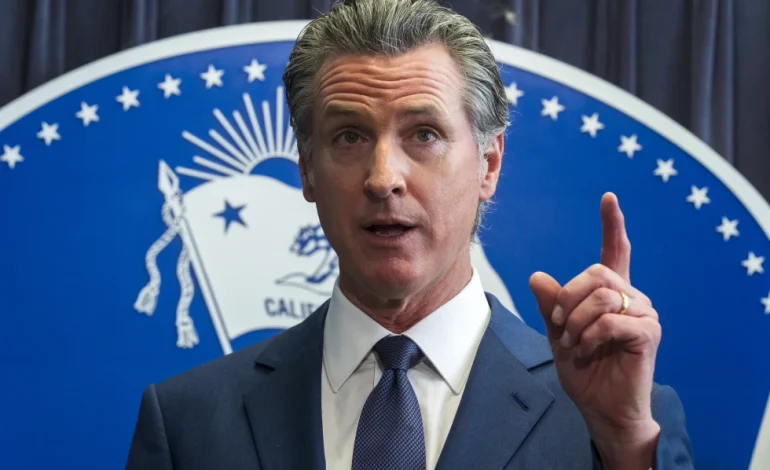In a move to combat the growing threat of AI-generated child sexual abuse material, California Governor Gavin Newsom signed two bills on Sunday aimed at protecting minors from the misuse of artificial intelligence, The Associated Press reports.
These laws, which garnered overwhelming bipartisan support, close a legal loophole and solidify the illegality of AI-generated child pornography.
The new legislation tackles the issue of AI-generated imagery, which often uses real victims or virtual characters, by explicitly stating that child sexual abuse material, even if AI-generated, is illegal to create, possess, and distribute in the state. Previously, district attorneys could face challenges prosecuting such cases due to the difficulty in proving the images depicted real individuals.
“Child sexual abuse material must be illegal to create, possess, and distribute in California, whether the images are AI generated or of actual children,” stated Democratic Assemblymember Marc Berman, author of one of the bills. “AI that is used to create these awful images is trained from thousands of images of real children being abused, revictimizing those children all over again.”
These measures are part of California’s ongoing efforts to regulate the rapidly evolving AI industry, which has seen limited oversight at the national level. Earlier this month, Newsom also signed laws aimed at tackling election deepfakes, although these are currently facing legal challenges.
The new legislation builds on previous efforts to strengthen laws on revenge porn, making it illegal to create or share AI-generated sexually explicit deepfakes without consent. Social media platforms are also required to provide users with a means to report such content for removal.
However, Los Angeles County District Attorney George Gascón expressed concern that the new laws do not go far enough, advocating for penalties for sharing AI-generated revenge porn to include those under 18. This provision was ultimately narrowed by state lawmakers to apply only to adults.
These developments follow San Francisco’s landmark lawsuit against websites offering AI tools capable of creating sexually explicit images from uploaded photos. The growing accessibility of AI technology has fueled concerns about the proliferation of AI-generated child sexual abuse material.
California’s proactive approach to regulating AI has positioned the state as a leader in addressing the ethical and legal challenges posed by this transformative technology. Newsom has championed California’s role as both an early adopter and a regulator of AI, highlighting the potential for the technology to address issues like traffic congestion and tax guidance, while acknowledging the need for safeguards against discrimination in hiring practices.









